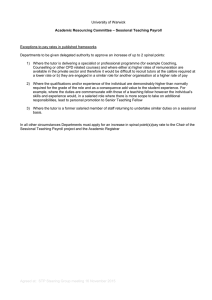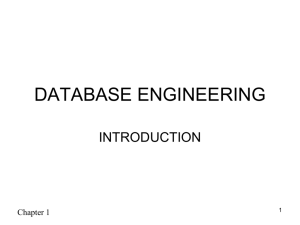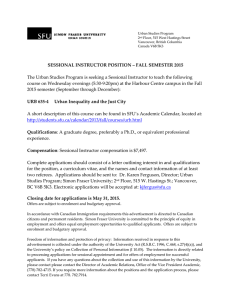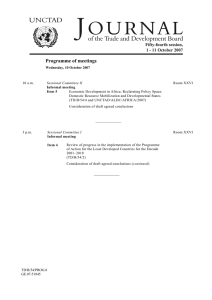Grant Criteria - Lincolnshire Community Foundation
advertisement
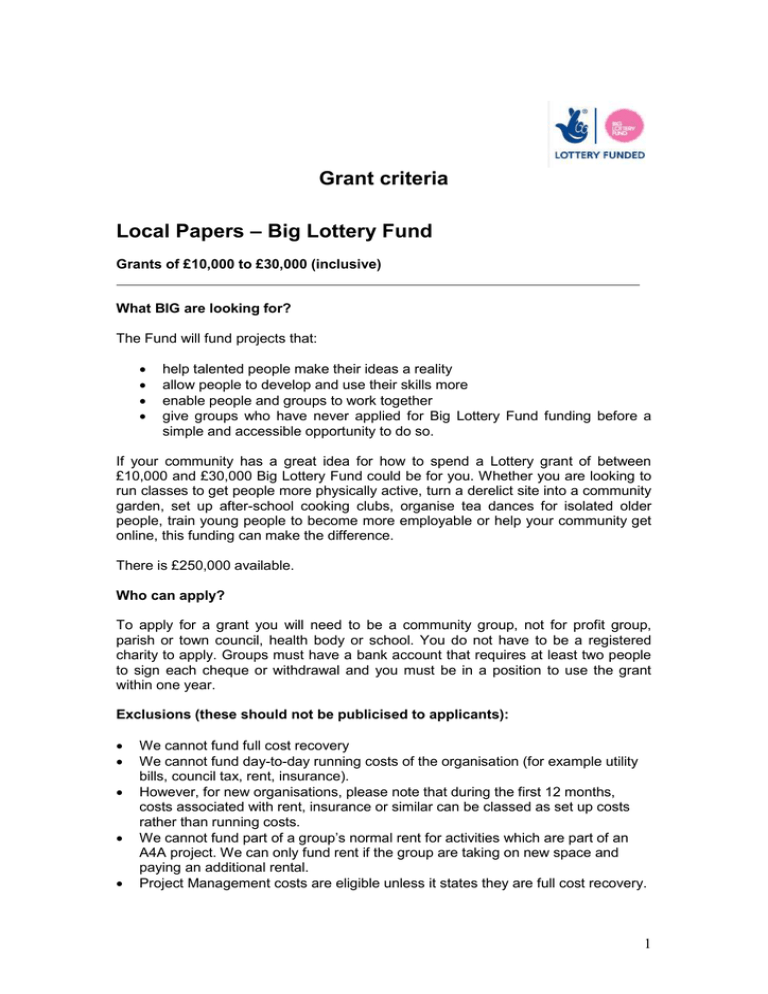
Grant criteria Local Papers – Big Lottery Fund Grants of £10,000 to £30,000 (inclusive) What BIG are looking for? The Fund will fund projects that: help talented people make their ideas a reality allow people to develop and use their skills more enable people and groups to work together give groups who have never applied for Big Lottery Fund funding before a simple and accessible opportunity to do so. If your community has a great idea for how to spend a Lottery grant of between £10,000 and £30,000 Big Lottery Fund could be for you. Whether you are looking to run classes to get people more physically active, turn a derelict site into a community garden, set up after-school cooking clubs, organise tea dances for isolated older people, train young people to become more employable or help your community get online, this funding can make the difference. There is £250,000 available. Who can apply? To apply for a grant you will need to be a community group, not for profit group, parish or town council, health body or school. You do not have to be a registered charity to apply. Groups must have a bank account that requires at least two people to sign each cheque or withdrawal and you must be in a position to use the grant within one year. Exclusions (these should not be publicised to applicants): We cannot fund full cost recovery We cannot fund day-to-day running costs of the organisation (for example utility bills, council tax, rent, insurance). However, for new organisations, please note that during the first 12 months, costs associated with rent, insurance or similar can be classed as set up costs rather than running costs. We cannot fund part of a group’s normal rent for activities which are part of an A4A project. We can only fund rent if the group are taking on new space and paying an additional rental. Project Management costs are eligible unless it states they are full cost recovery. 1 Existing activities (evidenced either from the application or on the group’s website if they have one) : we cannot fund existing activities and repeat or regular events to groups with an annual income of more than £30,000, unless it is more than 3 years since those activities or events took place, or unless they have been developed, for example they are going to be run with new beneficiary types or in a new area. We cannot fund ongoing staff costs (including salaries of permanent or fixed term staff)(more definitions on this below for further clarification) Staffing 1a) Sessional Workers A sessional worker is a person not employed under a contract of employment who is paid for undertaking work or providing a service on the basis of an agreed range of hours to be worked within a specified period, or on an ad hoc basis to meet varying need. Sessional workers are not classed as employees, but there is a very fine line between sessional workers and employees, which is often only tested in an Employment Tribunal. If a sessional worker is offered or promised regular work, they may become employees. Regular work means the offer of any number of hours on a regular basis. It does not necessarily mean weekly, but even if a sessional worker is offered a few hours each month, this may be deemed as regular enough for them to be regarded as an employee in law. This is a complex area of law which we cannot monitor at assessment and therefore have to assume when assessing applications that groups have completed their own due diligence in this regard. 1b) Self-employed & Agency Workers A self employed person could be taken-on on a sessional basis to undertake particular duties as long as these did not amount to a contractual agreement - see sessional workers above. An agency worker could not be taken on by a grant holder on a sessional basis as there is a contract in place with the agency. 1c) Fixed term workers Fixed-term workers have the same minimum rights as permanent workers. There are special regulations protecting fixed-term employees, which define a fixed-term employee as 'a person with a contract of employment which is due to end when a specified date is reached, a specified event does or does not happen or a specified task has been completed'. If someone is taken on as 'temporary', but without a contract that will end on a particular date, event or completion of a task then they are not covered by the regulations. The Fixed-term Employee Regulations only apply to employees: people who have a fixed-term employment contract with the business where they work. They don’t cover agency workers (‘temps’) who have a contract with an outside company, apprentices, or students and other trainees on workexperience placements or temporary work schemes. 2
